Captions Speak Louder | Exhibition

The world’s first archive and exhibition on theatre captions
Three years, 1,500 miles, over 300,000 people, ten venues and one archive. This is how we’ve marked the historical significance of Stagetext and the evolution of open captioning in the UK.
The contents of the Captions Speak Louder archive were used to create our travelling exhibition, helping us to share our story to more than 300,000 people across the UK. Read more about how we created the Captions Speak Louder exhibition and archive project.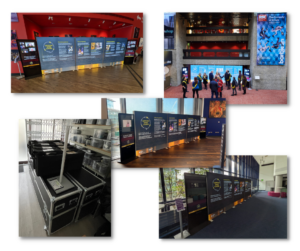
In November 2021 the exhibition was packed and ready to set off for its first stop, The Barbican Theatre in London. From January 2022 we visited nine other venues, totaling 1500 miles of travel, reaching as far north as Edinburgh and as far south as Southampton.
Thanks to all the wonderful host venues, the exhibition was very warmly received by the visitors and staff members who saw it. The front of house manager at the Festival Theatre in Edinburgh told us, ‘I am passionate about access and loved having an exhibition dedicated to captioning’.
If your venue would like to host the Captions Speak Louder exhibition, please contact us here.
Captions Speak Louder online – a taster of the exhibition
Stagetext’s archive, which inspired the exhibition, will live on at the University of Bristol Theatre Collection. Find out more about the archive.

John Unsworth, Caption User
Stagetext’s History
In the words or our founders, staff, captioners, and users…
The Need for Captioning
Before captioning, visiting the theatre was a frustrating experience for deaf, deafened and hard of hearing people. They were unable to enjoy performances with their hearing friends.
After seeing a captioned theatre performance produced by an American company visiting London, Peter Pullan, Merfyn Williams and Geoff Brown experienced a glimpse of what accessibility looked like and they wanted to share the experience with deaf audiences across the country.
The friends imported technology from the United States, hired their first captioner, and around a kitchen table they began work on what would become the birth of the theatre captioning in the UK, and the founding of the charity Stagetext.
Our three founders in their own words….
Geoff Brown
Peter Pullan
Merfyn Williams
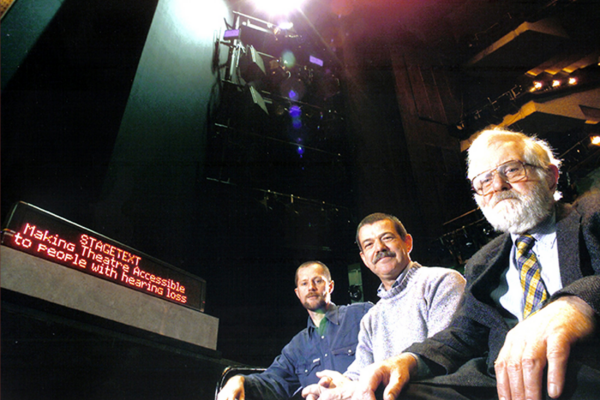 Image 1 of 4
Image 1 of 4
Stagetext's Founders; Merfyn Williams, Peter Pullan, and Geoff Brown
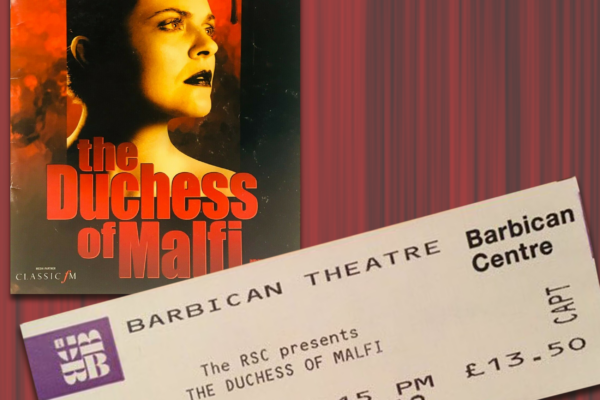 Image 2 of 4
Image 2 of 4
Stagetext's first captioned show was The Duchess of Malfi at The Barbican on 15 November 2000. Here we see the original ticket and programme for this show.
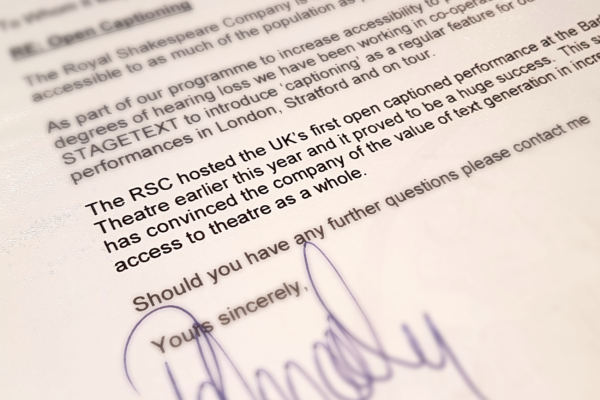 This letter from Peter Cadley, theatres manager, Royal Shakespeare Company, regarding co-operation with Stagetext. The letter is dated 19 July 2000 about 2 months after Stagetext was officially registered as a company and 4 months before the first captioned performance of the RSC’s ‘The Duchess of Malfi’ at the Barbican. - Image 3 of 4
This letter from Peter Cadley, theatres manager, Royal Shakespeare Company, regarding co-operation with Stagetext. The letter is dated 19 July 2000 about 2 months after Stagetext was officially registered as a company and 4 months before the first captioned performance of the RSC’s ‘The Duchess of Malfi’ at the Barbican. - Image 3 of 4
This letter from Peter Cadley, theatres manager, Royal Shakespeare Company, regarding co-operation with Stagetext. The letter is dated 19 July 2000 about 2 months after Stagetext was officially registered as a company and 4 months before the first captioned performance of the RSC’s ‘The Duchess of Malfi’ at the Barbican.
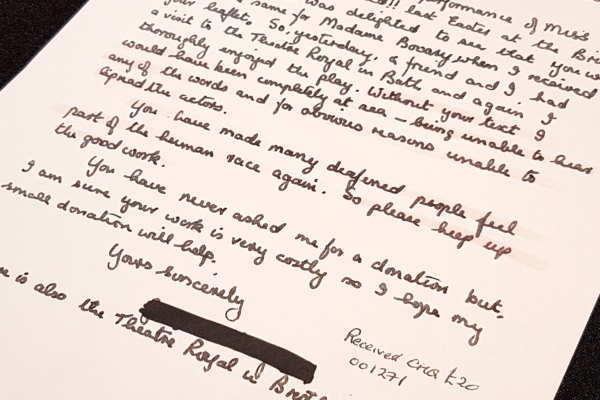 Image 4 of 4
Image 4 of 4
Letter from caption user regarding their attendance at a captioned performance at Theatre Royal, Bath, includes the quote “You have made many deafened people feel part of the human race again”.
Nell Baugh, Caption User
The Art of Captioning
From the beginning, Stagetext recognised the challenges of captioning live performance. Through consultation with deaf people, captioners, theatre directors and venues.
Our first captioners were Lynn Jackson and Roz Chalmers and today there are over 50 Stagetext-trained captioners working nationally.
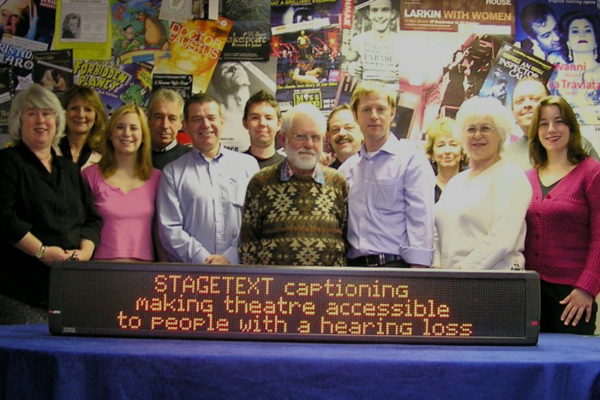 Image 1 of 4
Image 1 of 4
Image of Stagetext founders, captioners, staff and others in 2003 with one of our very early caption units.
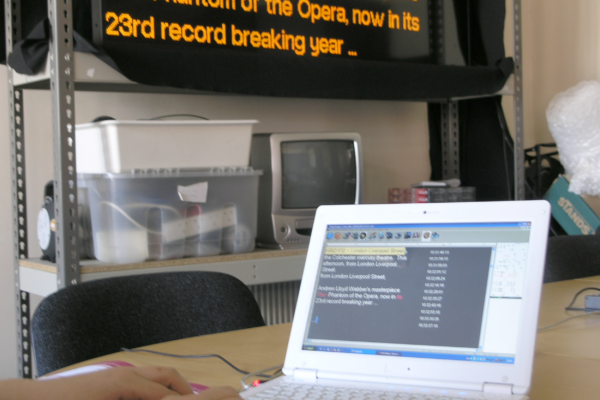 Image 2 of 4
Image 2 of 4
An early example of how our captioners worked and set up the equipment.
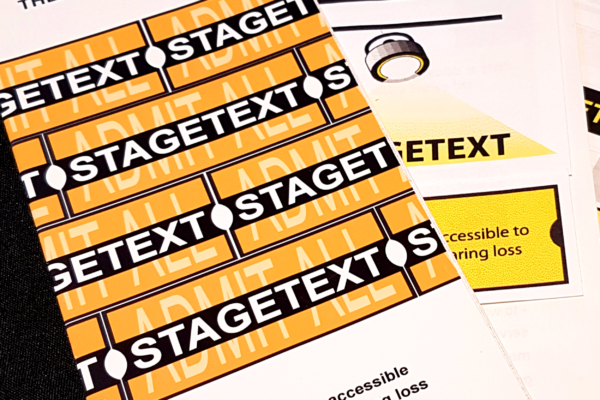 Image 3 of 4
Image 3 of 4
Spreading the word... These are examples of some of our first leaflets we'd circulate to deaf groups to help build our audiences.
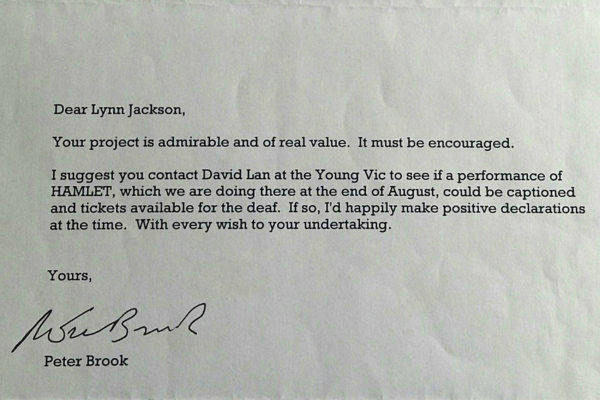 Image 4 of 4
Image 4 of 4
Theatre Director, Peter Brook, wrote to our first captioner, Lynn Jackson, showing his admiration for Stagetext's work.
Vivienne Keightley, caption user
Changing The Arts Landscape
Stagetext wanted more people to have access to the arts and they knew they couldn’t do it alone. By working together with community groups, arts venues and other access organisations, they became part of a network for positive change.
As captioning became more widespread, audiences wanted access to different kinds of events. Stagetext began working with speech-to-text reporters to make talks in museums, discussions at art galleries, and conferences more accessible too.
In 2010, Stagetext introduced a digital subtitling and during the COVID-19 pandemic the demand for accessible content grew. Stagetext worked with arts organisations to subtitle hundreds of online events, and produced free online training for venues, so that more people could enjoy the arts from home.
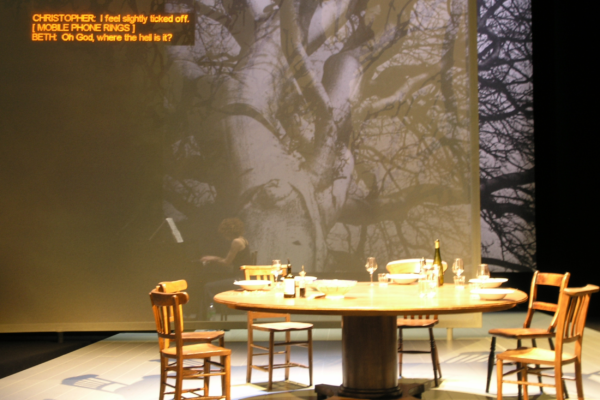 Image 1 of 3
Image 1 of 3
As theatre captioning became more widespread we were able to work with venues to better integrate our units in the sets.
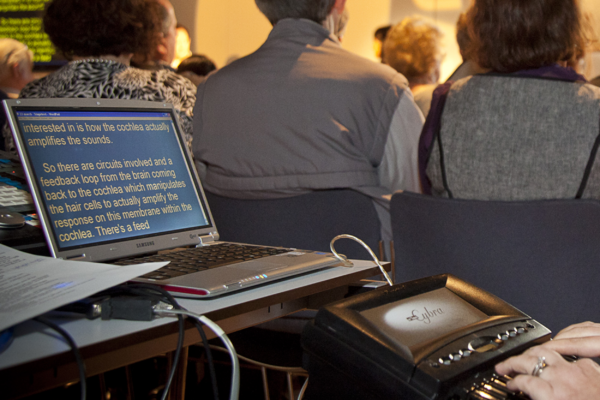 Image 2 of 3
Image 2 of 3
As our charity grew we began working with speech-to-text-reporters to offer live subtitled events at museums and galleries.
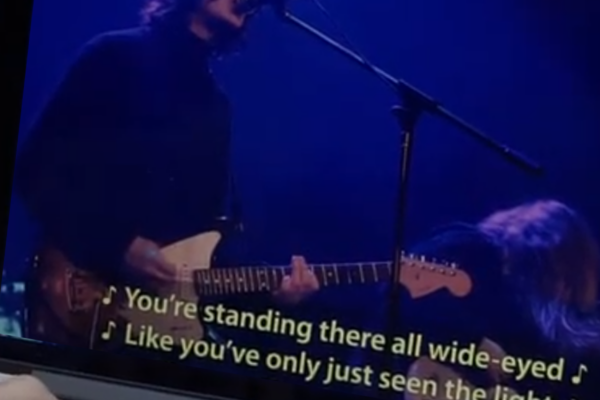 Image 3 of 3
Image 3 of 3
In 2010 we launched our digital subtitling department, allowing us to subtitle pre-recorded shows and events. This department was instrumental during the Covid-19 pandemic as the demand for accessible online content grew.
Early caption user



